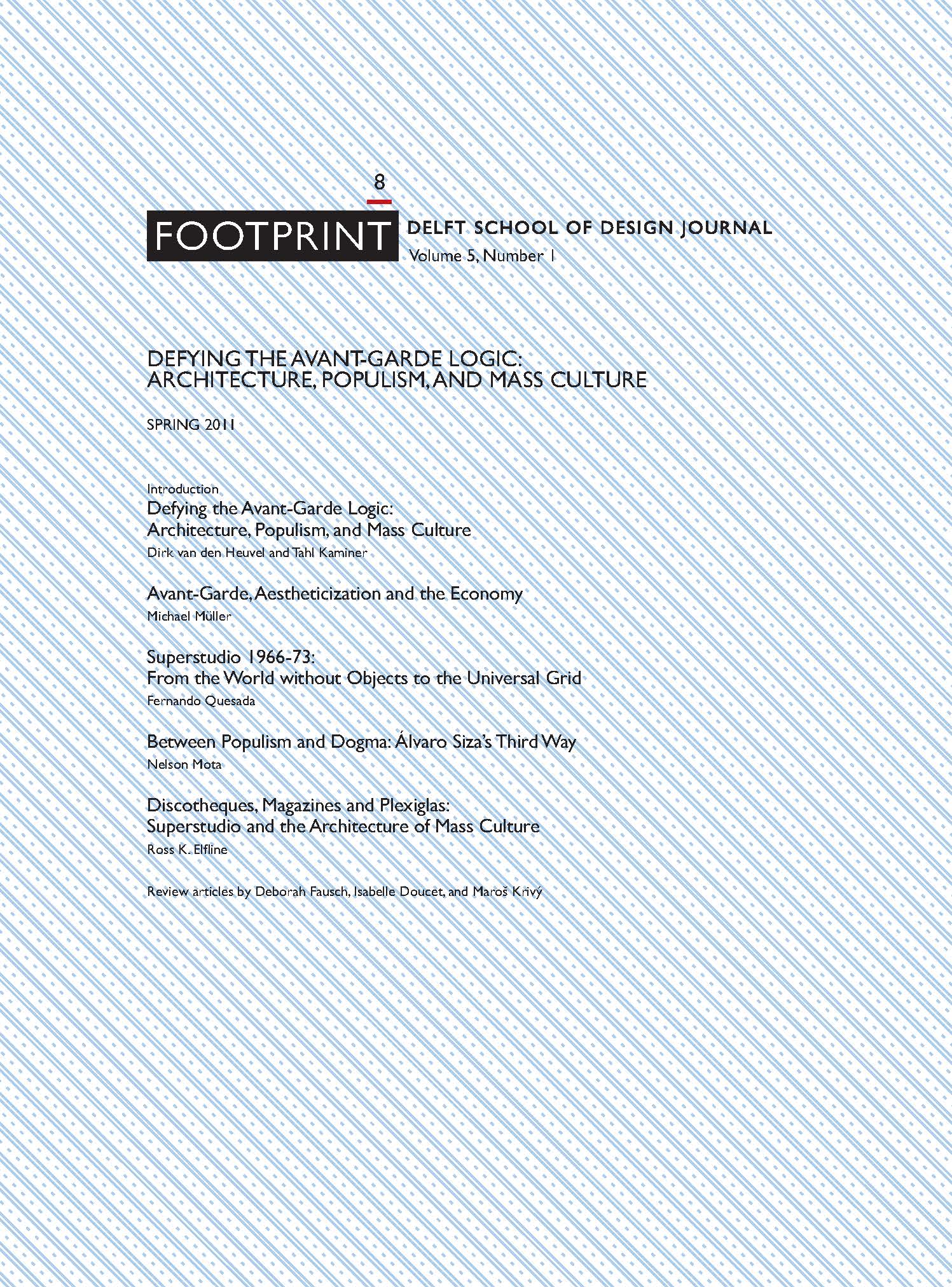Issue # 8 | Spring 2011 | Defying the Avant-Garde Logic: Architecture, Populism, and Mass Culture

This issue of Footprint focuses on the post-war years and the negotiation of architecture with an ever more advanced consumer society within the context of welfare state redistributive policies. Industrial, productivist logic is mixed in this era with the biopolitics of the emerging late-capitalist spectacle, and with the shock and awe brought about by the expanding mass-media networks.
Many of the contributions to Footprint 8 highlight the need for an alternative to the options spelled out in the last decades in architecture – a ‘radical pragmaticism’ of sorts. Michael Müller, in his diagnostic essay in this volume, outlines the aporia of the current condition of artistic and architectural production, and Isabelle Doucet searches for a theory, while Fernando Quesada, Ross K. Elfline, and Nelson Mota contribute specific precedents of architectural trajectories that were never followed, ranging from Superstudio’s work to Siza’s Malagueira. Deborah Fausch returns to the debate between Denise Scott Brown and Kenneth Frampton in 1971; Isabelle Doucet reviews a book by architecture-activists BAVO, calling for a form of radical pragmatism instead of the polarity of ‘opposition’ and ‘appeasement’; and Maroš Krivý contributes a review of the exhibition Dreamlands at the Centre Pompidou. Consequently, the discussion of the 1960s avant-garde and mass culture leads to an understanding of the challenges contemporary architecture faces and to an outlining of concrete alternatives from the recent past.
Issue's editors: Dirk van den Heuvel and Tahl Kaminer


